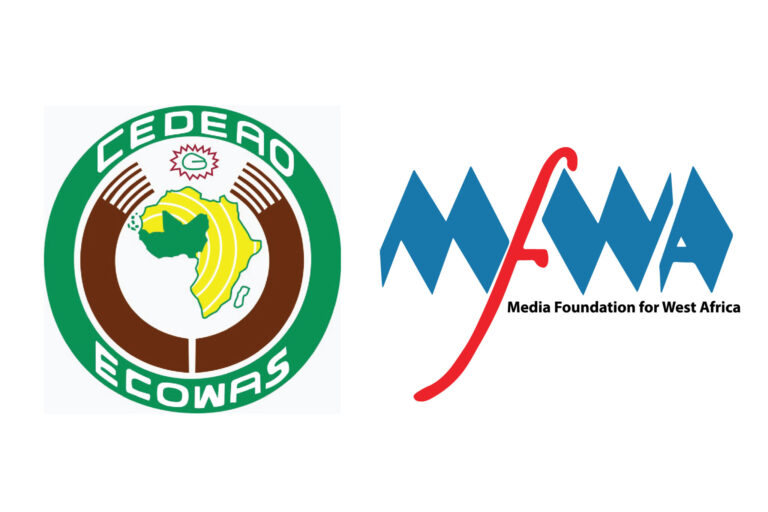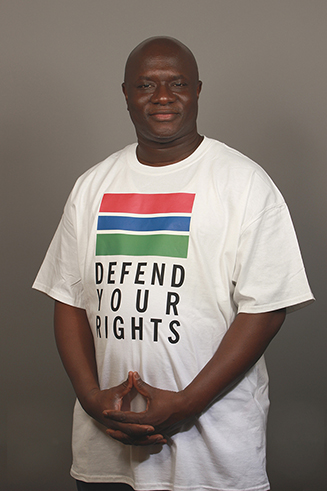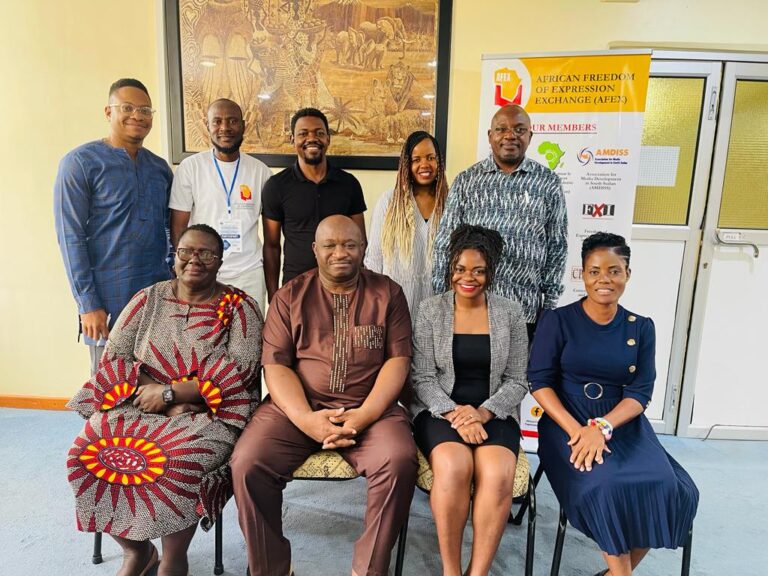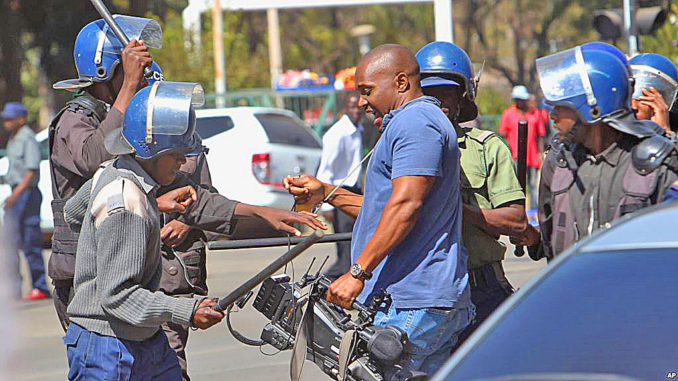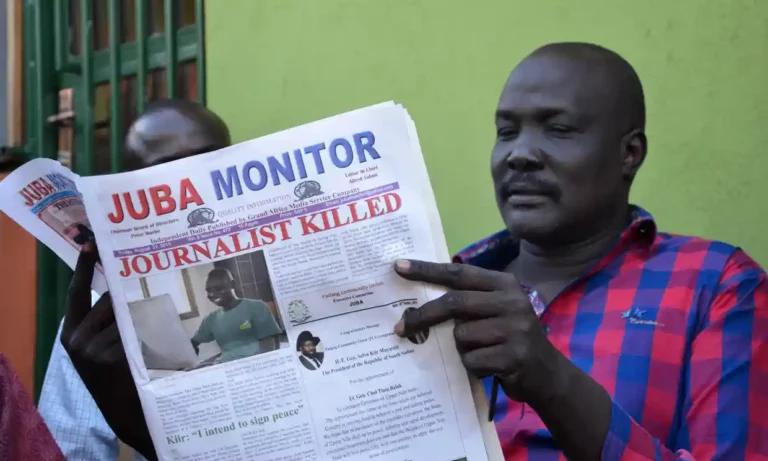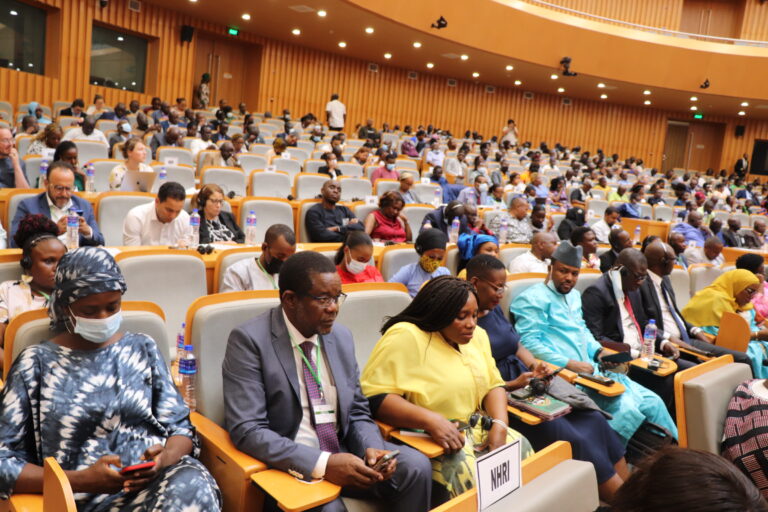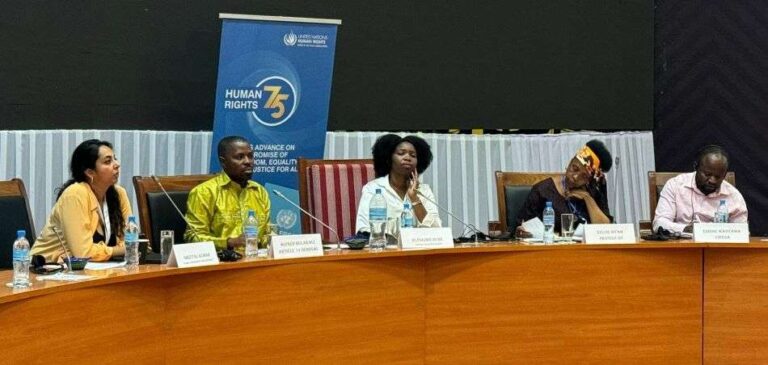(Banjul, The Gambia, 15 Nov., 2023) – The Gambia Press Union (GPU) is calling on the Gambia Police Force (GPF) to drop all charges against Madi Jobarteh, one of the country’s leading human rights activists. Madi is charged with “seditious intention”, “false publication and broadcasting”, and “incitement to violence” following his arrest, detention and subsequent release on police bail last month.
The charges are believed to have stemmed from unspecified social media comments he made last month in reaction to the arbitrary arrests and detention of an online media talk show host whose rights were violated by the police, and a series of comments by President Adama Barrow directed at media houses, activists and the opposition that were seen to threaten press freedom, freedom of expression, and Gambia’s fledgling democracy.
He has yet to appear in court, and his bail has been extended to 23rd November, 2023. The police are also holding onto his mobile phone since his arrest on 9th Octoberfollowing reports of surveillance by the police.
Madi, who was unwell and had informed the police of his health condition at the time of his arrest, saw his health deteriorated while in detention. He was later admitted at a local clinic before he was granted bail.
He has told a local daily that the charges against him are politically-motivated. “I find these charges to be ridiculous because I have not committed any of those offences, so for me, this is just persecution,” he told The Standard.
“We are calling on the police to immediately and unconditionally drop all charges against Madi Jobarteh,” GPU President, Muhammed S. Bah, said. “The government must respect the fundamental freedoms of individuals in law and in practice as affirmed by the Gambian Constitution and various United Nations, African Union and ECOWAS instruments that the Gambia is a party to.”
In May 2022, President Adama Barrow verbally attacked and threatened Madi Jobarteh in a live broadcast accusing him of seeking to “set the country on fire”, and that media organisations that offer him their platforms are harming the country – comments the GPU found unacceptable.
Madi was also arrested, detained and charged in July 2020 for organizing a ‘Black Lives Matter’ peaceful protest in front of the US Embassy in Banjul, and for criticizing Gambia government over unsolved killings of civilians allegedly linked to Gambian police and Senegalese forces.
“Madi Jobarteh is currently the most persecuted human rights activists in The Gambia, for merely utilising his fundamental right to free expression and holding the government, state institutions and public officials to account over allegations of corruption, poor service delivery and misgovernance,” GPU Secretary General, Modou S. Joof, said.
While the president and his government said it is committed “to democratic values, including the highest regard for the freedom and liberty of [the] people”, the recent arbitrary arrests and detention of journalists or media workers, rights activists, and opposition figures based on their work and speech or expression, and the president’s recent comments – go against whatever progress that has been made in terms of press freedom and freedom of expression.
“The government needs to demonstrate tolerance for freedom of expression and to appreciate the role of activists like Madi Jobarteh and the media who are playing a crucial role in fighting against corruption and for political and social-economic progress – which can only be achieved when fundamental rights and freedoms are upheld,” Joof said.
Sedition
Sedition, which is found in Section 51 of the Criminal Code, is an obsolete colonial-era law from 1933, which, among other laws, including “false publication”, was challenged at the ECOWAS Court of Justice. In 2018, the Abuja-based Court ruled that Gambia’s laws criminalising speech violated the rights of journalists, and directed that the government “immediately repeal or amend” the laws in line with its obligations under international law.
The sedition law was meant to ensure loyalty to the British Crown and to protect the monarchy from criticism and to stifle freedom of expression in an independence-seeking-Gambia, which has since been revised to shield Gambian presidents from criticism, being held accountable, and to severely restrict freedom of speech.
Seditious intention is seen as “an intention to bring into hatred or contempt or to ‘excite disaffection’ against the President”, which is punishable with a fine between 50,000 and 250,000 dalasi (between US$815 and $4,074) and/or a term of three years imprisonment. Part of the sedition law that shielded the government from being held accountable was scrapped by a Supreme Court ruling in 2018 following a GPU-suit from 2015.
False Publication
The “False Publication and Broadcasting” law, which has been replicated in the Criminal Offences Bill, 2022, is found in Section 181A of the Criminal Code. It states that the “negligent dissemination of false news or information” is punishable by a minimum of one year imprisonment and/or a fine between 50,000 and 250,000 dalasi. Under this law, anyone who “wilfully, negligently or recklessly, or having no reason to believe it is true, …publish or broadcast any information or news which is false…”, is deemed to have committed an offence. A lack of knowledge that the information was false is not a defence, unless it is proven that adequate measures were taken to verify the accuracy of the information.
In February, the GPU presented a position paper on the Criminal Offences Bill, 2022 to the National Assembly Committee on Human Rights and Constitutional Matters to consider removing sections on false publication and sedition which restricts press freedom and freedom of expression. The Bill, which seeks to repeal the current criminal code, is still at the committee stage.
While the government has accepted the recommendations of the Truth Commission to review these repressive laws restricting press freedom and freedom of expression in line with international human rights standards, there has been very little progress in terms of implementation, and the laws still exist in the criminal code, and some are replicated in the new criminal offences bill.
Incitement to Violence
Found in Section 59B of the Criminal Code, also imposes up to a three-year jail term for persons found guilty of “making any statement indicating or implying that it would be incumbent or desirable (a) to do any acts calculated to bring to death or physical injury to a person or to any class or community of persons; or (b) to do any acts calculated to lead to destruction or damage to any property.”
The Gambia government must uphold the rule of law, and its local and international obligations on fundamental freedoms as affirmed by the United Nations’ Universal Declaration of Human Rights which states that:
“Everyone has the right to freedom of opinion and expression; this right includes freedom to hold opinions without interference [from the government, police or anyone], and to seek, receive, and impart information and ideas through any media regardless of frontiers.”
The GPU urges the government to prioritize the reform of laws known to restrict press freedom, freedom of expression and civil liberties as per the recommendations of the Truth, Reconciliation and Reparations Commission, the 2018 Judgement of the ECOWAS Court, and recommendations by a government-instituted Media Law Reforms Committee in 2018.
These reforms should include removing or repealing or amending any provisions in the Criminal Code that are repressive or unduly restrictive or inimical to freedom of expression and of the press in a democratic society, including false publication and inciting to sedition which are found in the new Criminal Offences Bill, 2022.
All laws that negatively affect fundamental human rights and have been earmarked for reforms deserve the same urgency that the government gives to other laws at the level of the Executive and the National Assembly – as was the case for the Former Presidents’ Bill, 2023 among others.
– Ends-




